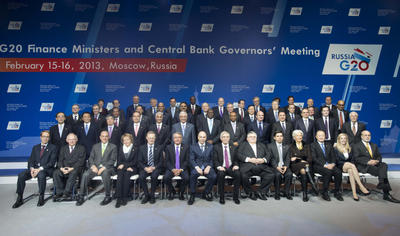If that happens, then even the WTO dispute settlement process will no longer provide protection to members — because there will be no rules to protect.
The specific danger at this stage is the complete abandonment of the most-favoured nation (MFN) principle. It is violated as a matter of course in FTAs. Multilaterally, the majority opinion is that the single-undertaking approach is dead, so post-Doha WTO agreements are likely to be single-issue. In all likelihood, they will also be plurilateral. The key question is whether they will also be preferential. There is already one such WTO agreement — on government procurement — and in discussions taking place on a WTO plurilateral agreement on services there is strong pressure for it too to be preferential. The writing is on the wall.
Is the MFN principle worth preserving in a post-Doha world, when the biggest trade barriers are behind the border? The principle is valuable when treating different trading partners unequally would lead to allocative efficiency losses. Some barriers create deadweight costs, and removing these is always beneficial, even preferentially. But entry barriers can also create rents, and here unequal treatment causes problems. When reform is preferential, it is partial; when it is partial there is scope for rents to remain.
The abandonment of the MFN principle is designed to punish those who stay away from the negotiating table. Yet much of the perceived need for punishment is based on the merchantilist fallacy, so punishment is a political act. In fact, abandoning the MFN principle would cause three problems. First, it would make it very difficult for countries to rejoin the negotiating table — as difficult as acceding to the WTO. Second, it would mean that those not at the table would play no role in setting any new regulatory principles in new agreements. Third, it would give no recognition to the fact that some developing countries are staying away because they face a serious policy sequencing issue.
Some of the biggest economic problems in Asia are caused by the poor economic performance of incumbent services suppliers, which are often State-owned. Their dominance and lack of competitiveness is a drag on economic growth, a source of structural imbalances and can act as a barrier to entry into regional production networks.
Will trade negotiations help? The difficulty is that trading partners have an interest in getting a slice of the incumbents’ action, but not in unleashing the full forces of domestic competition.
The best strategy for many developing countries may therefore be to delay trade negotiations while they get their domestic houses in order. Only once the general conditions for contestability are established will it be in their interests to return to the negotiating table to trade concessions on national treatment. The basic bargain of 21st century trade agreements may be ‘foreign investment for domestic reforms’, but the sequencing of reforms matters.
There are three possible roles for the G20. The first is about removing the punishment for staying away from the table. The second and third are about providing a reward for returning.
Concerted leadership is required to preserve the primacy of the MFN principle in new post-Doha agreements. The G20 is in a position to exert this leadership. Some argue that abandoning the MFN principle is the only way to make new trade agreements. But will agreements that rubbish WTO principles really be useful? It is better to maintain the principles and accept a temporary hiatus in agreement-making while unilateral reform temporarily carries the load.
This need not imply that the WTO would have nothing to do. The second role of the G20 would be to task the WTO with developing new pro-competitive regulatory principles that would be relevant for behind-the-border issues. The WTO reference paper on telecommunications is an example of this function, and such principles could be extended to other infrastructure industries. Disciplines are also needed on quality control regimes in social infrastructure industries, and work is required to ensure the coherence of WTO initiatives with those in other international forums.
A third role for the G20 would be to task the WTO with reconsidering how members reward countries for unilateral behind-the-border reform. The non-solution for services as part of the Doha Round was that credit would be negotiated. But once the sunk costs of unilateral reform are incurred, the scope for opportunism by trading partners is enormous. Granting credit for unilateral reform as it occurs in a type of tally process, to be cashed in when multilateral negotiations occur, would make it substantially easier for emerging countries to undertake the unilateral reforms that are a condition for their return to the negotiating table at a later stage. If the WTO had developed additional regulatory principles in the meantime, these could in turn define the types of unilateral reforms to which credit would accrue. The granting of credit would give all countries a stake in developing the principles, even if not all are ready to commit to them.
Philippa Dee is Adjunct Associate Professor at the Crawford School of Public Policy, the Australian National University.

